
EmpowED
Welcome to EmpowEd, our blog where we share advice and resources to help empower children through education around Body Safety, Consent, Social & Emotional Intelligence, Gender Equality, Diversity and Inclusion.

Speak Kindness: How Positive Self-Talk Shapes Your Child’s Inner World
We are our children's most enthusiastic supporters always ready to offer praise and encouragement. "What a great drawing! I really like how you used the blue paint.""I love how you figured that out by yourself!""It was very kind of you to help your brother!" We celebrate their achievements, efforts and positive behaviour because we want them to feel seen, loved, and confident. But what happens when we aren't there to cheer them on? When they face a tricky problem at school or a social challenge in the playground, what voice do they hear inside their own head? Let’s explore the...
Speak Kindness: How Positive Self-Talk Shapes Your Child’s Inner World
We are our children's most enthusiastic supporters always ready to offer praise and encouragement. "What a great drawing! I really like how you used the blue paint.""I love how you figured that out by yourself!""It was very kind of you to help your brother!" We celebrate their achievements, efforts and...
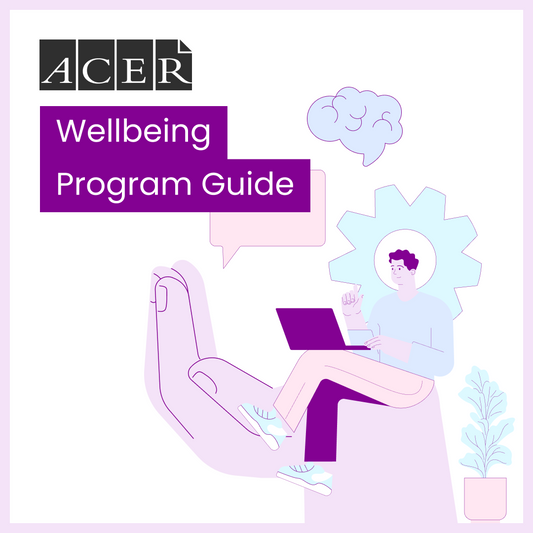
ACER's National Wellbeing Program Guide
We are pleased to announce that Educate2Empower Publishing has been selected for inclusion in the new Wellbeing Program Guide, a significant national initiative launched by the Australian Council for Educational Research (ACER). This comprehensive directory was commissioned by Tasmania's Department of Health and developed in close collaboration with the Department for Education, Children and Young People. It serves as a vital resource for schools across Australia, aiming to catalogue and showcase high-quality, evidence-based wellbeing programs. The guide acts as a 'one-stop-shop' for educators, enabling them to confidently assess and choose programs that best suit the specific needs of their students....
ACER's National Wellbeing Program Guide
We are pleased to announce that Educate2Empower Publishing has been selected for inclusion in the new Wellbeing Program Guide, a significant national initiative launched by the Australian Council for Educational Research (ACER). This comprehensive directory was commissioned by Tasmania's Department of Health and developed in close collaboration with the Department...
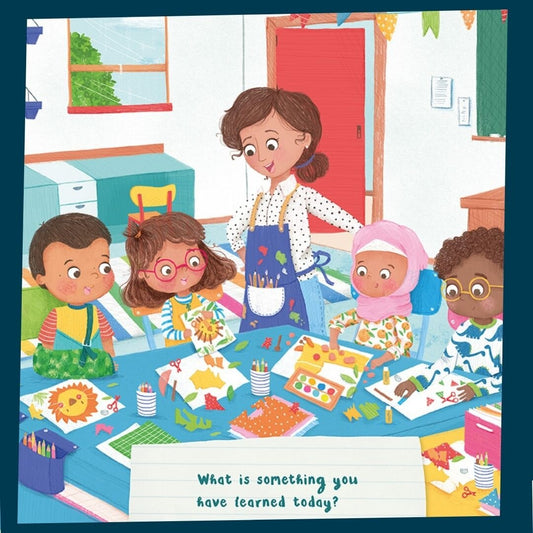
How and Why to Avoid Asking 'Why?' in the Classroom
When questioning children on their thoughts, feelings and actions, try to avoid the use of the word ‘why’. There are two main reasons for this. Firstly, ‘why’ holds negative connotations for many children. For example, when they’ve done something wrong, the first question that many people ask is, ‘Why did you do that?’ Secondly, ‘why’ is a very difficult question to answer — it requires us to look at the motivations behind our actions and feelings, which a lot of children won’t know — and will simply respond with ‘I don’t know’. Instead, re-phrase questions using ‘how’ or ‘what’ —...
How and Why to Avoid Asking 'Why?' in the Classroom
When questioning children on their thoughts, feelings and actions, try to avoid the use of the word ‘why’. There are two main reasons for this. Firstly, ‘why’ holds negative connotations for many children. For example, when they’ve done something wrong, the first question that many people ask is, ‘Why did...
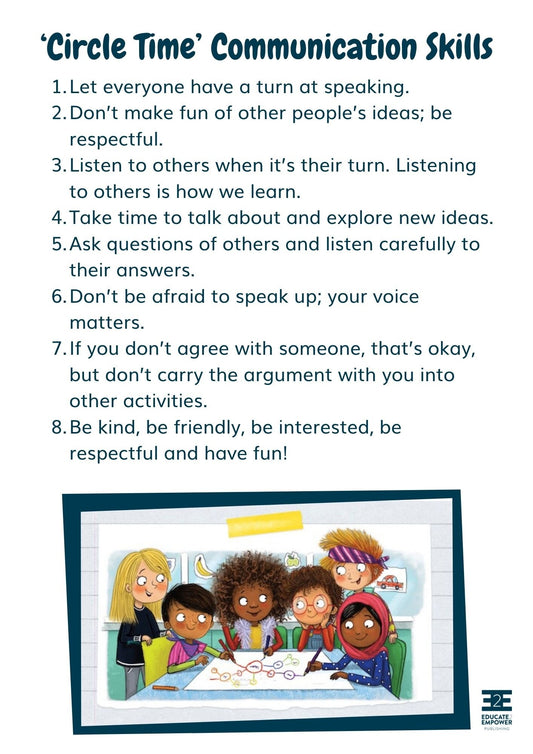
How to Conduct ‘Circle Time’ in the Classroom
‘Circle Time’ is a valuable classroom practice to settle the class and touch base with how students are travelling each day. Given that we are still in the midst of a global pandemic, this is a great exercise for creating and maintaining open communication within the classroom - both peer-to-peer as well as between teacher and students. During Circle Time, students each take turns to share their ideas and thoughts on a given discussion topic. Only one person speaks at a time — you may use a ‘talking stick’ like a soft toy to monitor who is the active...
How to Conduct ‘Circle Time’ in the Classroom
‘Circle Time’ is a valuable classroom practice to settle the class and touch base with how students are travelling each day. Given that we are still in the midst of a global pandemic, this is a great exercise for creating and maintaining open communication within the classroom - both peer-to-peer...
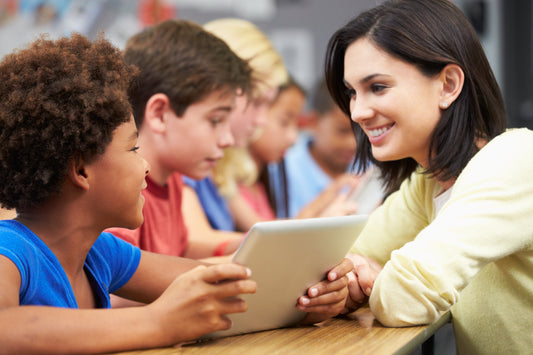
12 Things I Want All Beginning Teachers to Know
1. You are incredibly powerful. You can make an enormous difference to a child’s self-esteem, confidence and well-being. Talking to and treating a child with respect is key to them developing self-belief. You have an opportunity every single day to enhance a child’s self-confidence. 2. It’s the little things that matter. Asking a child how they are, and really listening to their reply is super important. Making that child (and every child) feel like they matter is powerful. So kneel down, place yourself at their level and listen. Try to understand the world from their perspective and always choose compassion...
12 Things I Want All Beginning Teachers to Know
1. You are incredibly powerful. You can make an enormous difference to a child’s self-esteem, confidence and well-being. Talking to and treating a child with respect is key to them developing self-belief. You have an opportunity every single day to enhance a child’s self-confidence. 2. It’s the little things that...

Mindful, Resilient and Focused Learners
As a mother of three teenage daughters and an experienced elementary school teacher, I am deeply concerned about our kids. Let me explain. Children today live in a world filled with technology — ipad interaction from birth, social media from pre-teens and access to everything and anything on the Internet from a very young age. Don’t get me wrong, as a teacher I know technology can be an amazing tool for learning. Extraordinary really. What does deeply trouble me, is the negative aspect of child/learner interaction with technology. I have come back to teaching after four years away. What I...
Mindful, Resilient and Focused Learners
As a mother of three teenage daughters and an experienced elementary school teacher, I am deeply concerned about our kids. Let me explain. Children today live in a world filled with technology — ipad interaction from birth, social media from pre-teens and access to everything and anything on the Internet...
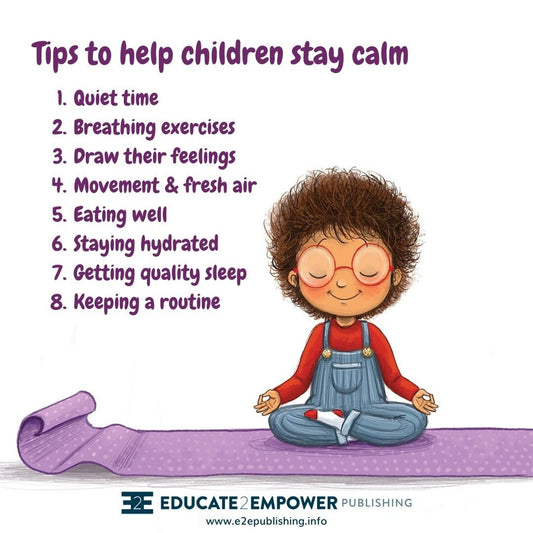
Tips to Help Children Stay Calm
At this time of year with the transition from holidays to returning to school, it's no surprise that we typically see some big emotions from the children in our lives – it can be intense for everyone, including the adults! Here are some tips to help with the overwhelm and assist children with staying calm amongst the chaos (keeping in mind that every child is different): 1. Quiet time - carve out some time each day for your child to have some screen-free time to themselves. Perhaps they have a favourite space - a chair to sink into or...
Tips to Help Children Stay Calm
At this time of year with the transition from holidays to returning to school, it's no surprise that we typically see some big emotions from the children in our lives – it can be intense for everyone, including the adults! Here are some tips to help with the overwhelm and...